Happening in Hydro
Hi folks,
Hydropower is a tough field, and it can feel a little like an endless loop to work on similar issues across projects without seeing much change. That’s why is such a relief and a breath of fresh air to see FERC making policy changes that have a real, positive impact. We were thrilled to see FERC’s new policy on hydro preliminary permits a couple weeks ago: effective immediately, the Commission will not issue a preliminary permit for a project proposed on Tribal lands if the Tribe is opposed to it. Huge thanks to the Hopi Nation and Navajo Nation for their leadership on this issue. Read the Hopi Nation’s press release here, and see below for more details.
Speaking again of this being a tough – and dare I say wonky – field, we know it can be daunting to understand the ins and outs of hydro. As part of HRC’s ongoing effort to provide information and resources to help people understand and effectively participate in project licensing and license implementation, I am excited to share that we are co-hosting a Hydropower Insights webinar series with River Management Society and National Park Service. Details below.
We are constantly working to engage with people across the country working in hydropower, and we are ramping up for a busy spring! The Steering Committee is heading to Washington DC in April to connect with FERC and Congressional staff. A few colleagues and I will present on a hydropower panel at River Rally in May, so look us up if you’re heading to that event. For folks in the southeast, keep an eye out for the HRC table at Water Rally in Alabama in March.
As always, this is a team effort. Please reach out if you would like to connect!
Colleen McNally-Murphy
Associate National Director |
|
Hydro Insights Webinar Series

Building on the foundation laid by the Hydropower Licensing 101 Toolkit (published in 2023 by the River Management Society, National Park Service and Hydropower Reform Coalition), this four-part series is designed to address the gaps in available resources for hydropower practitioners seeking an understanding of various aspects of hydropower projects and the licensing process.
Hydropower Projects 101
March 13 @ 9 – 10:30 PST / noon – 1:30 EST
Gain a fundamental understanding of hydropower projects, covering types, components, generation, distribution, and more.
Hydropower’s Role in the Energy Market
March 20 @ 9 – 10:30 PST / noon – 1:30 EST
Explore hydropower’s place in the dynamic energy market, focusing on marketing strategies, economic viability, and future profitability.
Trends in Relicensing: Evolution, Challenges, and Lessons Learned
April 3 @ 9 – 10:30 PST / noon – 1:30 EST
Explore the history and trajectory of hydropower relicensing covering early milestones, current trends, and insights for today’s practitioners.
Hydropower’s Role in the Energy Grid
April 24 @ 9 – 10:30 PST / noon – 1:30 EST
Understand hydropower’s ability to provide ancillary services benefiting the energy market and grid, including project characteristics associated with different types of grid services and a fleet-wide view of how much hydro contributes in different areas.
Learn more and register here.
Co-hosted by Hydropower Reform Coalition, River Management Society, and National Park Service.
|
|
Resource Spotlight
The HRC provides training on the hydropower licensing process a few times a year. Let us know if you’re interested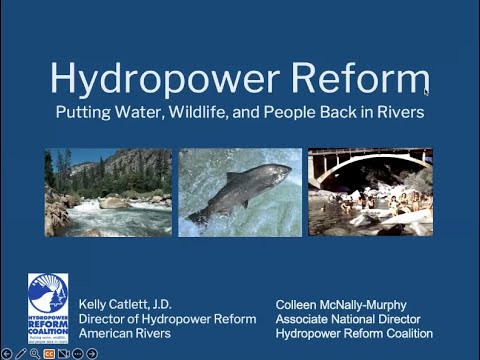 in joining the next one, which includes both a presentation and a great discussion (that second part isn’t recorded). In the meantime, check out this recording from a recent training provided by Kelly Catlett and myself. in joining the next one, which includes both a presentation and a great discussion (that second part isn’t recorded). In the meantime, check out this recording from a recent training provided by Kelly Catlett and myself.
This introductory training introduced how hydropower licensing works, what you can achieve during a project licensing, how the Federal Energy Regulatory Commission works, and strategies for getting involved.
|
|
|
New FERC preliminary permit policy
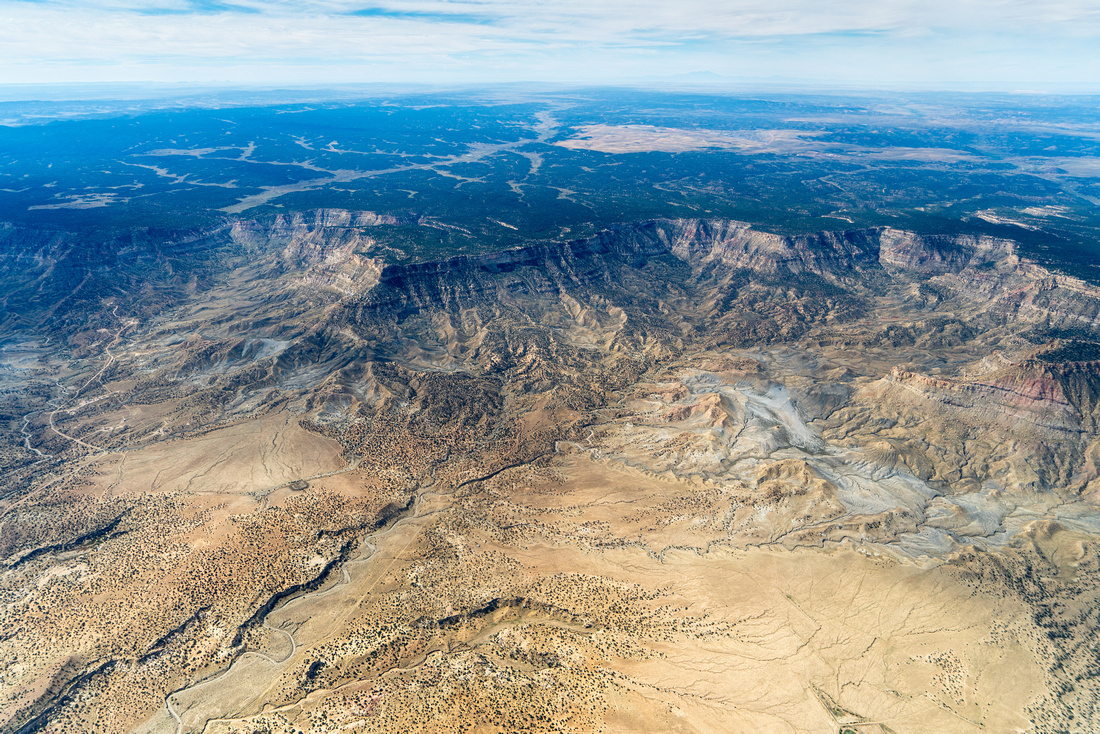 Black Mesa, Arizona. Photo by Ecoflight. On February 15th, FERC issued a decision denying three pumped storage hydro projects on Black Mesa in Arizona. These three projects (p-15233, p-15234, and p-15235) were proposed on the Navajo Nation’s trust lands and the Hopi Tribe’s ancestral lands and were opposed by both Tribes. The decision states:
“In the past, we applied the general policy of granting permits even where issues were raised about potential project impacts without a distinction for projects on Tribal lands opposed by Tribes. As noted, we have recently revised this policy when permits have been opposed by federal land managers or similarly affected federal agencies. We believe that our trust responsibility to Tribes counsels a similar policy in cases involving Tribal lands and accordingly, we are establishing a new policy that the Commission will not issue preliminary permits for projects proposing to use Tribal lands if the Tribe on whose lands the project is to be located opposes the permit. … A denial of a preliminary permit also does not preclude an applicant from developing and filing a license application with the Commission to be considered in full. As with permit applications, we encourage developers to work closely with Tribes in preparing license applications.”
This policy was effective immediately, and is already being applied to other projects like the Big Canyon pumped storage project (p-15024), also on Navajo Nation lands. On February 20th, FERC set a 30-day comment period allowing additional comments on this project, “in light of the new policy.”
|
|
GHG emissions from hydro projects
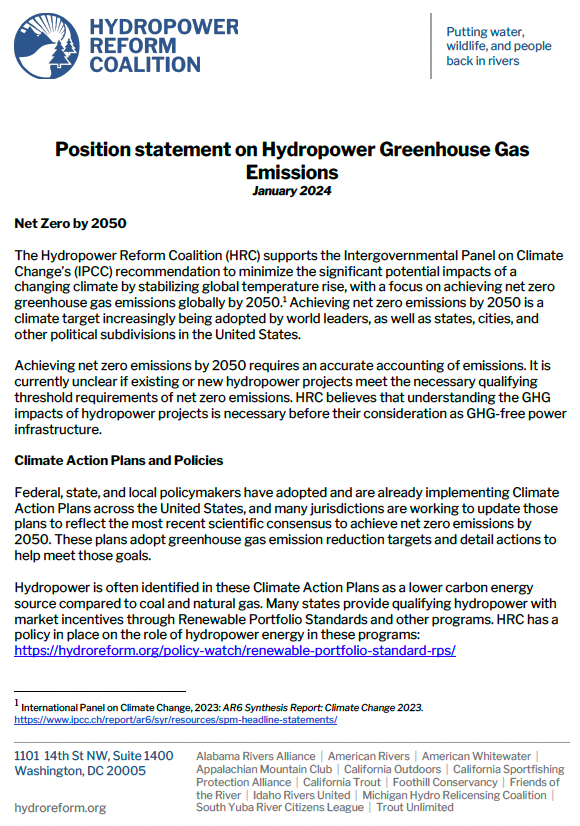 Hot off the press, the Hydropower Reform Coalition has just finalized our Position Statement on Hydropower Greenhouse Gas Emissions. This is an issue we care a lot about, and we’ve put time over the last few years into understanding the science behind how hydro facilities can produce emissions and into developing resources to help people advocate for a fuller accounting of the emissions at the projects they care about. Read more about the issue and find these resources here. Hot off the press, the Hydropower Reform Coalition has just finalized our Position Statement on Hydropower Greenhouse Gas Emissions. This is an issue we care a lot about, and we’ve put time over the last few years into understanding the science behind how hydro facilities can produce emissions and into developing resources to help people advocate for a fuller accounting of the emissions at the projects they care about. Read more about the issue and find these resources here.
We support full and accurate accounting of the hydro industry’s emissions so that we can find ways to reduce and mitigate those emissions.
Here are a few of the specific things we seek, with more in the statement:
- Support additional research into emissions at reservoirs and hydropower generation facilities, including
- methodologies for quantifying emissions and
- opportunities for mitigation of emissions through improved reservoir operations.
- Encourage FERC to consider project emissions in their licensing decisions.
- Inform the licensing process by requiring NEPA analyses to include a greenhouse gas emissions analysis for each project.
- Oppose and prevent new dams, diversions, and reservoirs.
|
|
Did you know?
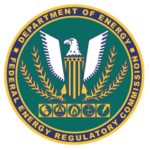 FERC’s monthly Insight newsletter has lots of good information about policy updates, Office of Public Participation news, upcoming events, and more. Sign up here if you haven’t already. FERC’s monthly Insight newsletter has lots of good information about policy updates, Office of Public Participation news, upcoming events, and more. Sign up here if you haven’t already.
|
|
From the Blog
Proactive Action is Key to Balancing Future Water Demands with Supply
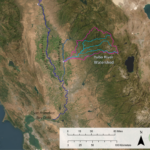 The South Yuba River Citizens League (SYRCL) and our partners are currently working through a tangle of water issues which stretch from the highest reaches of our beloved Yuba River all the way to the Golden Gate Bridge. This issue promises to impact how Yuba water flows into the Bay-Delta system which will have a notable impact on the health of the Yuba watershed’s ecology, especially for salmon. Join us as we work through the challenges we face together in four acts. Read more. (SYRCL) The South Yuba River Citizens League (SYRCL) and our partners are currently working through a tangle of water issues which stretch from the highest reaches of our beloved Yuba River all the way to the Golden Gate Bridge. This issue promises to impact how Yuba water flows into the Bay-Delta system which will have a notable impact on the health of the Yuba watershed’s ecology, especially for salmon. Join us as we work through the challenges we face together in four acts. Read more. (SYRCL)
Salmon litigation: a refresher on what this agreement does
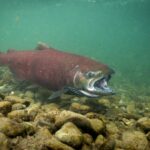 On February 8th, Judge Michael Simon approved the five year stay in litigation that IRU, our co-plaintiffs, and four Tribal Nations with Oregon and Washington (the Six Sovereigns) agreed on with the federal government in December. This ruling by an Oregon judge formally confirms that the Tribal-state plan crafted by the six Sovereigns, known as the Columbia Basin Restoration Initiative or CBRI, as well as U.S. government funding commitments, will bring a new approach to salmon and steelhead recovery in the Basin. Read more. (Idaho Rivers United) On February 8th, Judge Michael Simon approved the five year stay in litigation that IRU, our co-plaintiffs, and four Tribal Nations with Oregon and Washington (the Six Sovereigns) agreed on with the federal government in December. This ruling by an Oregon judge formally confirms that the Tribal-state plan crafted by the six Sovereigns, known as the Columbia Basin Restoration Initiative or CBRI, as well as U.S. government funding commitments, will bring a new approach to salmon and steelhead recovery in the Basin. Read more. (Idaho Rivers United)
Progress Report: two years in to the Bipartisan Infrastructure Law
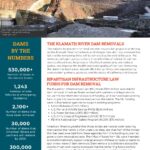 Giddy smiles and stomping feet. We stood next to the Klamath River and watched muddy water rush out from the tunnel under the Iron Gate Dam. The twenty-degree weather couldn’t freeze out the excitement of our group; even as we tried to kick feeling back into our toes, an energy pulsed through us as we watched part of the largest dam removal and river restoration project in history take place. Read more. (American Rivers) Giddy smiles and stomping feet. We stood next to the Klamath River and watched muddy water rush out from the tunnel under the Iron Gate Dam. The twenty-degree weather couldn’t freeze out the excitement of our group; even as we tried to kick feeling back into our toes, an energy pulsed through us as we watched part of the largest dam removal and river restoration project in history take place. Read more. (American Rivers)
|
|
|